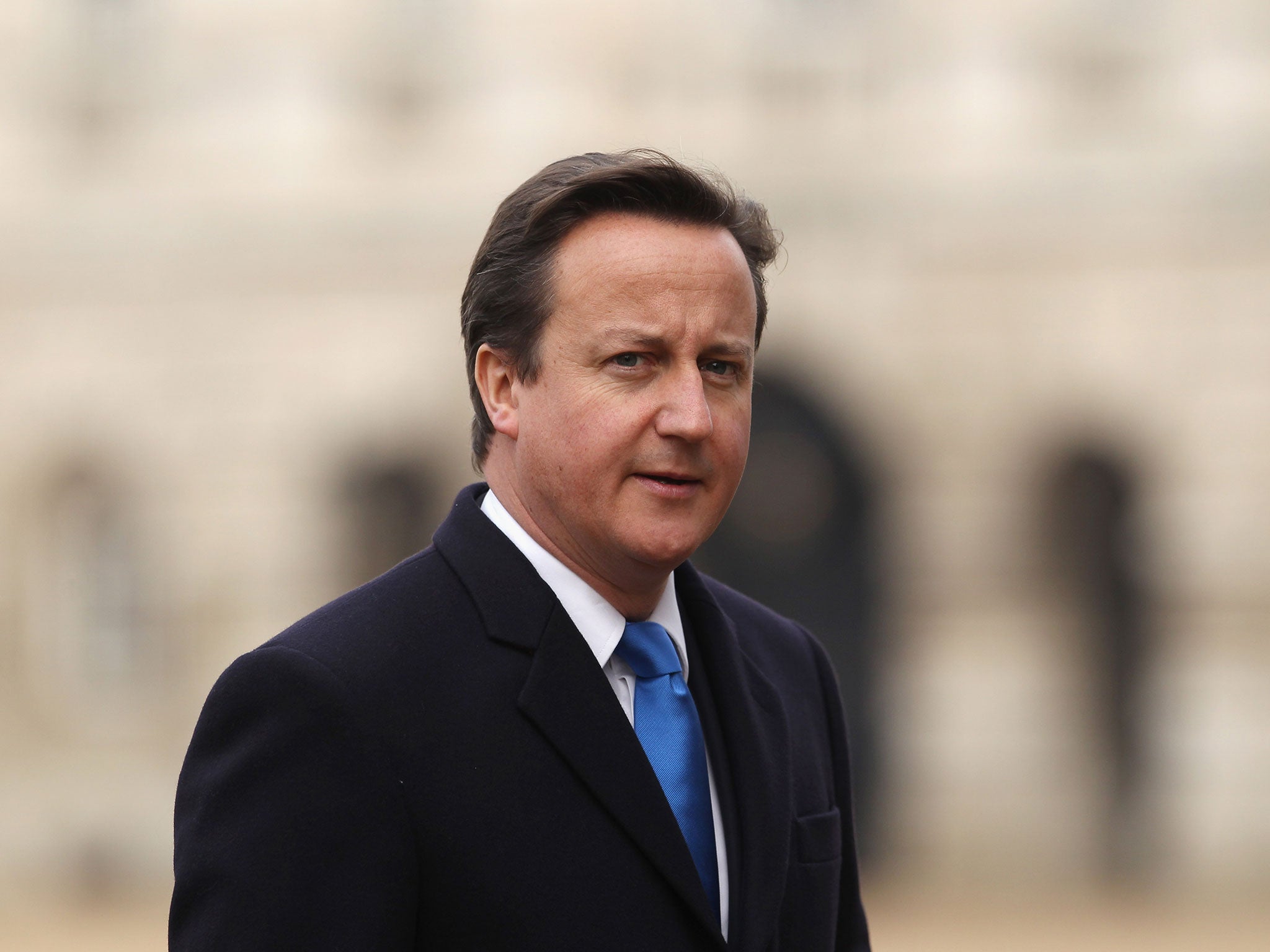Iraq crisis: David Cameron will not put 'boots on ground' – but Britain's involvement expected to last for months
Prime Minister has warned 'monstrous' Isis militants pose direct threat to streets of Britain

David Cameron has said he will not put "boots on the ground" in Iraq as it emerged that Britain's military involvement in the region could last for months.
The Prime Minister came under fire over the weekend from senior members of the Church of England for not having a "coherent" strategy for tackling the strengthening position of Isis jihadists and their persecution of Christians and other minorities in the region.
Speaking on BBC Breakfast this morning, Mr Cameron said that Britain's role had now moved beyond providing humanitarian aid, but that ground troops would not be sent to the area.
"Britain is not going to get involved in another war in Iraq. We are not going to be putting boots on the ground. We are not going to be sending in the British Army."
He confirmed that Britain will continue to help Kurdish fighters, who yesterday retook the key strategic Mosul dam with assistance from US air strikes, as he re-emphasised warnings that the rise of extremism could pose a direct threat to the "streets of Britain".
"Alongside the humanitarian crisis there is also a political and extremism crisis in Iraq that has a direct effect on us back here in the UK," he said.
"We do want to have, and we do have, a fully worked through strategy for helping allies to deal with this monstrous organisation, IS.
"So we are helping the Kurds, we are working with the Iraqi government to make sure it is more representative of the whole country and, of course, we are working with neighbours and allies to put the maximum amount of pressure on IS and make sure it is properly dealt with.
"We have said that if the Kurds, the Peshmerga, want to have arms from us, that is something we would consider favourably.
His comments follow the deployment by the RAF of the Rivet Joint surveillance aircraft alongside Tornado bombers to provide vital intelligence on extremist movements across Iraq.
Defence Secretary Michael Fallon told personnel taking part that it was likely to last "weeks and months".
He said: "We and other countries in Europe are determined to do what we can to help the government of Iraq combat this new and very extreme form of terrorism that Isil [also known as Isis] is promoting."
Mr Fallon spoke to pilots and other service members during a visit to RAF Akrotiri in Cyprus, where the UK operation is based.
Isis, an extreme Sunni Islam group, has declared an Islamic state, or caliphate, across swathes of northern Iraq and Syria.
Yesterday it emerged that more than 1,000 Yazidi women would be forced to marry militants.
In recent weeks, thousands of Yazidis were forced to flee Isis fighters when there towns were overrun, sparking a humanitarian crisis on Mount Sinjar.
Additional reporting by PA
Join our commenting forum
Join thought-provoking conversations, follow other Independent readers and see their replies
0Comments